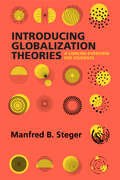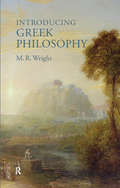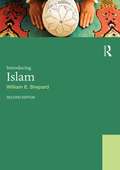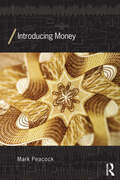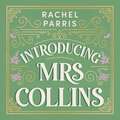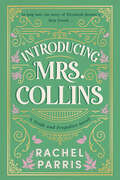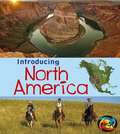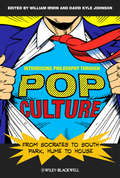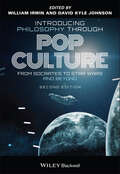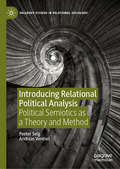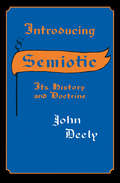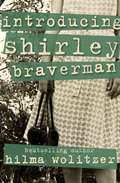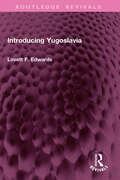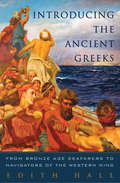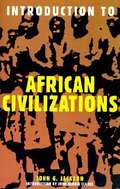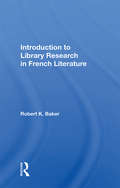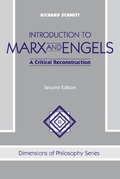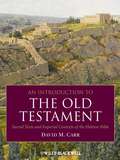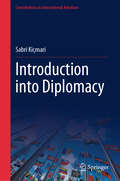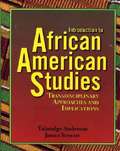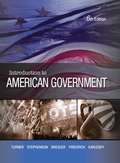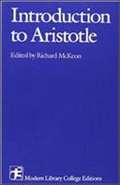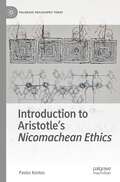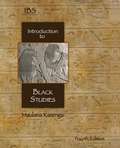- Table View
- List View
Introducing Globalization Theories: A Concise Overview for Students
by Prof. Manfred B. StegerSince the explosion of the buzzword "globalization" in academic and public discourse more than thirty years ago, theoretical explorations of worldwide interconnectivities and mobilities have proliferated across major academic disciplines. Introducing Globalization Theories is a short yet comprehensive primer to major globalization theories from the 1990s to the present. This accessible volume explains how globalization frameworks have been assembled by influential thinkers who employ different modes of inquiry. Short summaries, illustrations, and a supplemental guide to further reading equip students with tools to assess the strengths and weaknesses of each theory. Intersecting with relevant contemporary themes such as inequality and ecology, the book also highlights and features postcolonial and Indigenous globalization theories that challenge Western-centric views and point to a more equitable world.
Introducing Greek Philosophy
by Rosemary WrightAimed at students of classics and of philosophy who would like a taste of the subject before being committed to a full course and at those who have already started and need to find their bearings in what may seem at first a complex maze of names and schools, "Introducing Greek Philosophy" is a concise, lively, philosophically aware introduction to ancient Greek philosophy. The book begins with the Milesians in Asia Minor before moving over to the developments in the western Greek world, then focusing on Socrates, Plato and Aristotle in Athens, finishing with the Hellenistic schools and their arrival in Rome, where the main ideas are set out in the Latin poetry of Lucretius and the prose of Cicero.The book eschews the method of most histories of ancient philosophy of addressing one thinker after another through the centuries. Instead, after a basic mapping of the territory, it takes the great themes that the Greeks were engaged in from the earliest times, and looks at them individually, their development in argument and counter-argument, from the beginnings of recorded Greek history, through the various upheavals of tyrannies, democracies, oligarchies and kingships, to their introduction into Rome in the first century BC.
Introducing Islam (World Religions)
by William ShepardWhat exactly is 'Islam' and what does it mean to be a 'Muslim' in the world today? Since the events of 9/11 and 7/7, Islam has become one of the most controversial and misunderstood religions in the world. Introducing Islam encourages students to put aside their preconceptions and explore this fascinating religion. <p><p> William Shepard, an experienced teacher in the field, traces the history of Islam, from its early environment and origins in the life and career of Mohammed, through its classical expressions to its interactions with the West in the modern world. Shepard devotes a chapter each to important topics such as The Qur'an, Islamic law, Islamic theology, and the Sufi movement. In addition to this, four chapters are devoted to studies of Islam in individual countries: Turkey, Iran, Egypt and Indonesia, and Shepard explores Islamic civilization through discussion of Islamic art and culture, and community rituals. <p> Introducing Islam is the ideal introduction for students wishing to gain a sympathetic understanding of Islam. Illustrated throughout, the book also includes text boxes, summary charts, a glossary of key Arabic terms, and a list of further reading to aid students' understanding and revision. The accompanying website for this book can be found at www.routledge.com/textbooks/9780415455183.
Introducing Money (Economics as Social Theory #33)
by Mark PeacockThis book provides a theoretical and historical examination of the evolution of money. It is distinct from the majority of ‘economic’ approaches, for it does not see money as an outgrowth of market exchange via barter. Instead, the social, political, legal and religious origins of money are examined. The methodological and theoretical underpinning of the work is that the study of money be historically informed, and that there exists a ‘state theory of money’ that provides an alternative framework to the ‘orthodox’ view of money’s origins. The contexts for analysing the introduction of money at various historical junctures include ancient Greece, British colonial dependencies in the nineteenth and early twentieth century, and local communities which introduce ‘alternative’ currencies. The book argues that, although money is not primarily an ‘economic’ phenomenon (associated with market exchange), it has profound implications (amongst others, economic implications) for societies and habits of human thought and action.
Introducing Mrs Collins: A Pride and Prejudice sequel telling the story of what Charlotte Lucas did next....
by Rachel ParrisCharlotte Lucas finally becomes the heroine of her own story in this heartfelt and mermerising sequel to Pride and Prejudice, written by comedian and Austentatious founding member Rachel Parris and published to coincide with Jane Austen's 250th birthday.Charlotte Lucas always thought she wasn't romantic and had written herself out of her own life - but is it ever too late to find your own happy ending?When Charlotte Lucas chooses security over romance, her eyes are wide open to the decision she is making. Marriage to Mr Collins offers stability, if not passion, and she is determined to make the best of it. While Elizabeth Bennet turns away in judgement of her choice, Charlotte builds a life in Kent - one of duty, routine and quiet contentment.But everything changes when an unexpected visitor arrives at Rosings Park. A spark is lit, an impossible longing awakened.Torn between what she must do and what she truly desires, Charlotte finds herself at the centre of a story she never expected to be hers. A tale of love, loss and second chances, Introducing Mrs Collins is for anyone who wondered if there was more to the sensible character we met in Pride and Prejudice. It is the story of a woman who had written herself out of her own life, only to learn it is never too late to find your own happy ending.
Introducing Mrs. Collins: A Novel
by Rachel ParrisJust in time for Jane Austen&’s 250th birthday, comes the story of Elizabeth Bennet&’s best friend, Charlotte Lucas, in this heartfelt and mesmerizing sequel to Pride and Prejudice. It is a truth universally acknowledged that a woman deserves to be the heroine of her own story. Charlotte Lucas has never been a romantic. Practical to a fault, she accepted Mr. Collins's proposal with clear eyes and a steady heart, trading passion for security. Life at Hunsford Parsonage may be quiet and predictable, but it is hers to manage—and she's determined to make the best of it, whatever her friend Elizabeth Bennet may think. That is, until an unexpected guest at nearby Rosings Park turns Charlotte's careful world on its head. He sees her, challenges her, and a spark is lit. Torn between what she must do and what she truly desires, Charlotte finds herself at the center of a story she never expected to be hers. A tale of love, loss, and second chances, Introducing Mrs. Collins is for anyone who wondered if there was more to the sensible character we met in Pride and Prejudice. It is the story of a woman who had written herself out of her own life and is only now daring to want more.
Introducing North America (Introducing Continents)
by Chris OxladeIt introduces young readers to the continent of North America through age-appropriate maps, engaging photographs, and simple text. Topics covered within the book include where the continent is, climate, geography, animals and plants, countries, people and languages, natural resources, cities, and famous places.
Introducing Philosophy Through Pop Culture: From Socrates to South Park, Hume to House
by William Irwin David Kyle JohnsonWhat can South Park tell us about Socrates and the nature of evil? How does The Office help us to understand Sartre and existentialist ethics? Can Battlestar Galactica shed light on the existence of God? Introducing Philosophy Through Pop Culture uses popular culture to illustrate important philosophical concepts and the work of the major philosophers With examples from film, television, and music including South Park, The Matrix , X-Men, Batman, Harry Potter, Metallica and Lost, even the most abstract and complex philosophical ideas become easier to grasp Features key essays from across the Blackwell Philosophy and Pop Culture series, as well as helpful editorial material and a glossary of philosophical terms From metaphysics to epistemology; from ethics to the meaning of life, this unique introduction makes philosophy as engaging as popular culture itself Supplementary website available with teaching guides, sample materials and links to further resources at www.pop-philosophy.org
Introducing Philosophy Through Pop Culture: From Socrates to Star Wars and Beyond
by William Irwin David Kyle JohnsonCan Wonder Woman help us understand feminist philosophy? How Does Wakandan technology transcend anti-Blackness? What can Star Trek teach us about the true nature of reality? Introducing Philosophy Through Pop Culture makes important philosophical concepts and the work of major philosophers relevant, fun, and exciting. Using engaging examples from film and television, this easy-to-read book covers everything from basic metaphysics and epistemology to abstract and complex philosophical ideas about ethics and the meaning of life. You don’t have to be a pop culture expert to benefit from this book—even a general awareness of cultural icons like Superman or Harry Potter will be more than enough for you to learn about a wide range of philosophical notions, thinkers, and movements. The expanded second edition offers timely coverage of important topics such as race, gender, personal identity, social justice, and environmental ethics. New essays explore the philosophical underpinnings of The Good Place, Game of Thrones, Black Panther, Star Wars, The Avengers, South Park, The Lego Movie, The Big Bang Theory, and more. This edition is supported by a new website with links to primary philosophical texts, information about all the popular culture discussed, and additional resources for teachers, students, and general readers alike. Features a selection of key essays from the bestselling Blackwell Philosophy and Pop Culture Series Draws on examples from popular media including The Matrix, Lost, Doctor Strange, The Hobbit, Westworld, and Star Trek Explains philosophical concepts such as relativism, skepticism, existentialist ethics, logic, social contract theory, utilitarianism, and mind-body dualism Discusses the ideas of Socrates, Aristotle, Plato, Descartes, Nietzsche, Heidegger, Marx, Mill, Kierkegaard, and other important thinkers Introducing Philosophy Through Pop Culture is an excellent supplementary textbook for introductory philos for introductory philosophy courses and a valuable resource for general readers wanting to learn about philosophy and its connections with pop culture.
Introducing Relational Political Analysis: Political Semiotics as a Theory and Method (Palgrave Studies in Relational Sociology)
by Andreas Ventsel Peeter SelgThis book introduces relational thinking to political analysis. Instead of merely providing an overview of possible trajectories for articulating a relational political analysis, Peeter Selg and Andreas Ventsel put forth a concrete relational theory of the political, which has implications for research methodology, culminating in a concrete method they call political form analysis. In addition, they sketch out several applications of this theory, methodology and method. They call their approach “political semiotics” and argue that it is a fruitful way of conducting research on power, governance and democracy – the core dimensions of the political – in a manner that is envisioned in numerous discussions of the “relational turn” in the social sciences. It is the first monograph that attempts to outline an approach to the political that would be relational throughout, from its meta theoretical and theoretical premises through to its methodological implications, methods and empirical applications.
Introducing Semiotic: Its History and Doctrine (Advances In Semiotics Ser. #No. 287)
by John DeelyThis comprehensive survey of semiotics examines its development from pre-Socratic philosophy to Peirce’s Sign Theory and beyond.In Introducing Semiotics, renowned philosopher and semiotician John Deely provides a conceptual overview of the field, covering its development across centuries of Western philosophical thought. It delineates the foundations of contemporary semiotics and concretely reveals just how integral and fundamental the semiotic point of view really is to Western culture. In particular, the book bridges the gap from St. Augustine in the fifth century to John Locke in the seventeenth.The appeal of semiotics lies in its apparent ability to establish a common framework for all disciplines, a framework rooted in the understanding of the sign as the universal means of communication. With its clarity of exposition and careful use of primary sources, Introducing Semiotics is an essential text for newcomers to the subject and an ideal textbook for semiotics courses.
Introducing Shirley Braverman
by Hilma WolitzerAs World War II rages, a sixth-grader from Brooklyn battles adolescenceEven while the air-raid sirens blare, Shirley Braverman isn&’t worried. Her father is the air-raid warden for their apartment house, and she knows he will keep them safe. There is a war on the other side of the ocean, but here in Brooklyn, life goes on. People ride trolleys, they go to double features at the movies, and they cheer on the Dodgers, win or lose. Shirley is also the best speller in her school&’s sixth grade, and she has her eyes on an even bigger title: spelling champion of New York City. When she&’s not practicing, Shirley takes care of her younger brother, Theodore—a clumsy kid who&’s scared of everything that moves, and some things that don&’t. But to win the spelling bee, she will have to listen to what she&’s always telling Theodore: Believe in yourself, and don&’t be afraid. This ebook features an illustrated biography of Hilma Wolitzer, including rare photos and never-before-seen documents from the author&’s personal collection.
Introducing Yugoslavia (Routledge Revivals)
by Lovett F. EdwardsIntroducing Yugoslavia (1954) looks at the racial and historic chequer-board of 1950s Yugoslavia, providing a fascinating insight into the social and cultural aspects of a land that few Westerners visited at the time. Avoiding politics, it provides sociocultural descriptions and historical details across a wealth of the country’s different regions.
Introducing the Ancient Greeks: From Bronze Age Seafarers to Navigators of the Western Mind
by Edith Hall"Wonderful . . . a thoughtful discussion of what made [the Greeks] so important, in their own time and in ours."--Natalie Haynes, Independent The ancient Greeks invented democracy, theater, rational science, and philosophy. They built the Parthenon and the Library of Alexandria. They wrote down the timeless myths of Odysseus and Oedipus, and the histories of Leonidas's three hundred Spartans and Alexander the Great. But understanding these uniquely influential people has been hampered by their diffusion across the entire Mediterranean. Most ancient Greeks did not live in what is now Greece but in settlements scattered across Turkey, Syria, Egypt, Libya, France, Italy, Bulgaria, Russia, and Ukraine. They never formed a single unified social or political entity. Acclaimed classics scholar Edith Hall's Introducing the Ancient Greeks is the first book to offer a synthesis of the entire ancient Greek experience, from the rise of the Mycenaean kingdoms of the sixteenth century BC to the final victory of Christianity over paganism in AD 391. Each of the ten chapters visits a different Greek community at a different moment during the twenty centuries of ancient Greek history. In the process, the book makes a powerful original argument: A cluster of unique qualities made the Greeks special and made them the right people, at the right time, to take up the baton of human progress. According to Herodotus, the father of history, what made all Greeks identifiably Greek was their common descent from the same heroes, the way they sacrificed to their gods, their rules of decent behavior, and their beautiful language. Edith Hall argues, however, that their mind-set was just as important as their awe-inspiring achievements. They were rebellious, individualistic, inquisitive, open-minded, witty, rivalrous, admiring of excellence, articulate, and addicted to pleasure. But most important was their continuing identity as mariners, the restless seagoing lifestyle that brought them into contact with ethnically diverse peoples in countless new settlements, and the constant stimulus to technological innovation provided by their intense relationship with the sea. Expertly researched and elegantly told, Introducing the Ancient Greeks is an indispensable contribution to our understanding of the Greeks.
Introduction To African Civilization
by John Henrik Clarke John G. JacksonThis work challenges all the standard approaches to the saga of African history, from the dawn of prehistory to the modern resurgent Africa of today.
Introduction To Library Research In French Literature
by Robert K. BakerThis book is an introduction to the complexities of library research for the student of French literature. addresses the structure of the modern American academic library, giving particular attention to the exploitation of information in the card catalog, interlibrary loans, and the reference function. is a selective bibliographic guide to the more important information resources (dictionaries, encyclopedias, bibliographies, etc.) likely to be found in the medium to large college or university library. Each title listed in this section is annotated as to scope and coverage, and the introduction to each type of reference tool includes a list of standard library subject headings for further library research. The final chapter provides practical suggestions on how to "get ready for research" on a term paper, as well as suggestions for further readings that explain the purposes and methodology of literary scholarship.
Introduction To Marx And Engels
by Richard SchmittThis book steers a middle path between those who argue that the theories of Marx and Engels have been rendered obsolete by historical events and those who reply that these theories emerge untouched from the political changes of the last ten years. Marxism has been a theory of historical change that claimed to be able to predict with considerable accuracy how existing institutions were going to change. Marxism has also been a political program designed to show how these inevitable changes could be hastened. Richard Schmitt argues that Marxian predictions are ambiguous and unreliable, adding that the political program is vitiated by serious ambiguities in the conceptions of class and of political and social transformations. Marxism remains of importance, however, because it is the major source of criticisms of capitalism and its associated social and political institutions. We must understand such criticisms if we are to understand our own world and live in it effectively. While very critical of the failures of Marx and Engels, this book offers a sympathetic account of their criticism of capitalism and their visions of a better world, mentions some interpretive controversies, and connects the questions raised by Marx and Engels to contemporary disputes to show continuity between social thought in the middle of the last century and today. Addressed to undergraduate students, the book is easily accessible. It will be important in introductory or middle-level courses in sociology, political theory, critical theory of literature or law. It will also be useful in graduate courses in political theory, sociology, and economics.
Introduction To The Old Testament: Sacred Texts And Imperial Contexts Of The Hebrew Bible
by David M. CarrThis comprehensive, introductory textbook is unique in exploring the emergence of the Hebrew Bible in the broader context of world history. It particularly focuses on the influence of pre-Roman empires, empowering students with a richer understanding of Old Testament historiography. <P><P>Provides a historical context for students learning about the development and changing interpretations of biblical texts <P><P>Examines how these early stories were variously shaped by interaction with the Mesopotamian and Egyptian, Assyrian, Babylonian, Persian, and Hellenistic empires <P><P>Incorporates recent research on the formation of the Pentateuch <P><P>Reveals how key biblical texts came to be interpreted by Jewish, Christian, and Muslim faiths Includes numerous student-friendly features, such as study questions, review sections, bibliographies, timelines, and illustrations and photos
Introduction into Diplomacy (Contributions to International Relations)
by Sabri KiçmariThe textbook is a rarity as it explores the functions of diplomacy from a practical perspective on diplomatic activity. This in-depth study redefines diplomacy, distinguishing it from conventional definitions. While the historical context of diplomacy is briefly discussed, the spotlight then turns to six diplomatic classics: Niccolo Machiavelli, Hugo Grotius, Ernest Satow, Harold Nicolson, Henry Kissinger, and Geoff R. Berridge. Thus, their brief biographies and core diplomatic tenets are revealed. Many aspects of the theories of international relations are covered, including liberalism, realism, neoliberal institutionalism, and constructivism. Diplomatic protocol is analysed as an instrument, guiding the position of political and diplomatic representatives according to the ranking system. Practical examples abound, with illustrations of protocol rules from the United States, the United Kingdom, Japan, Australia, France, Germany, China, and Kosovo. The pivotal role of language in diplomacy is discovered as a communication tool, alongside an examination of its specific significance. It also delves into public diplomacy, exploring its evolution over the three two decades, heavily influenced by media developments. The book also focuses on the establishment of sociology of diplomacy as a new independent discipline. It sheds light on the necessary scientific research procedures, both theoretical and empirical, grounded in descriptive methodologies, understanding, and sociological explanations of the diplomatic phenomena. A crucial part of the book examines the connection between diplomacy and ethics and asserts that while states naturally pursue their interests, adherence to ethical principles must remain steadfast. Finally, gain insights into the traits and characteristics of a modern diplomat as the book draws to a close.
Introduction to African American Studies: Transdisciplinary Approaches and Implications
by James Stewart Talmadge AndersonThere is an ongoing debate as to whether African American Studies is a discipline, or multidisciplinary or interdisciplinary field. Some scholars assert that African American Studies use a well-defined common approach in examining history, politics, and the family in the same way as scholars in the disciplines of economics, sociology, and political science. Other scholars consider African American Studies multidisciplinary, a field somewhat comparable to the field of education in which scholars employ a variety of disciplinary lenses-be they anthropological, psychological, historical, etc., --to study the African world experience. In this model the boundaries between traditional disciplines are accepted, and researches in African American Studies simply conduct discipline based an analysis of particular topics. Finally, another group of scholars insists that African American Studies is interdisciplinary, an enterprise that generates distinctive analyses by combining perspectives from different traditional disciplines and synthesizing them into a unique framework of analysis.
Introduction to American Government
by Charles C. Turner Robert J. Bresler Robert J. Friedrich D. Grier Stephenson Jr.The need persists for widespread mastery of the political system John Quincy Adams once described as "the most complicated on the face of the globe." Adams was writing about two hundred years ago, and things certainly haven't gotten less complicated since then. In the early 2000s we experienced a number of political complications, including three close and contentious presidential elections that geographically and ideological divided our nation into "red" and "blue" states.
Introduction to American Government (Ninth Edition)
by Charles C. Turner Robert J. Bresler Robert J. Friedrich D. Grier Stephenson Jr.American politics is a constantly changing montage of people and events, of facts and opinions. <P><P> In order to keep up with our changing environment, and to make sure students have the most up-to-date information available, each new edition of Introduction to American Government undergoes a vigorous process of fact-checking and updating. In this edition, for example, readers will find revised weblinks and readings for further study; more critical thinking questions; and discussions of the latest events in American government-such as the 2016 elections, immigration reform, conflict with ISIS, racial tensions, and important Supreme Court decisions on same-sex marriage and on the First Amendment. <P><P>In addition, each chapter contains important new material and the most current available facts and figures. This textbook is not a "theme" or point-of-view book. Aside from emphasizing the importance of politics and political involvement, the book embraces no single ideological perspective; it does not attempt to make readers Democrats or Republicans, liberals or conservatives. <P><P> To ensure a single voice in this presentation, one author has served as general editor. The goals are knowledge of, and critical thinking about, American politics and government. Accordingly, we have designed the book to encourage students to engage the material. Passive reading is not enough. Understanding so important and complex a subject necessitates active intellectual involvement.
Introduction to Aristotle
by Aristotle Richard P. MckeonThis Introduction to Aristotle is a presentation in which Aristotle is permitted to speak for himself in the context of a sketched scheme of the relation of what he says in one treatise to what he says elsewhere. The seven introductions which precede these seven works place them in their contexts by describing their relations to other works or parts of works, their place in the scheme of the Aristotelian sciences, and the fashion in which the subjects treated in the sciences they expound may be considered in the approaches proper to other sciences in the system.
Introduction to Aristotle's Nicomachean Ethics (Palgrave Philosophy Today)
by Pavlos KontosThis book provides a balanced and accessible introduction to Aristotle's Nicomachean Ethics. It carefully and comprehensively follows the thread of Aristotle’s argument and sheds light on topics that all too often receive little attention or are entirely ignored in the existing textbooks (such as self-control, legislative science and the legislator, the life of the money-maker, craft-knowledge, comprehension, and beastliness).Its objective is not only to offer an academically reliable presentation of Aristotle’s Ethics but to also defend Aristotle’s main tenets—or, at least, to present them in their most defensible form.It places the Nicomachean Ethics within the study of ethics generally; students are invited to understand Aristotle’s claims in the light of, or in contrast to, other ethical theories or their own intuitions about ethical matters.It follows the reader of the Nicomachean Ethics in action, registering questions, expectations and progress within an insightful exegesis of Aristotle's philosophical argument. It is replete with pedagogical tools including examples from our concrete everyday experience, paintings, films, and literature, end of chapter summaries, internet resources, suggestions for further reading, study questions, and essay questions.
Introduction to Black Studies (4th Edition)
by Maulana KarengaA comprehensive textbook that covers Black/African American studies across a variety of academic disciplines.
